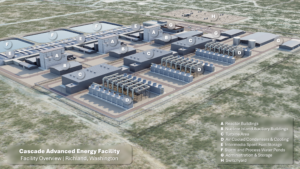About 700 nuclear engineers on Monday joined 144 others in a strike that has lasted more than a month, after failing to reach a labor pact with Candu Energy, a subsidiary of Canada’s SNC-Lavalin Group.
The striking workers are members of the Society of Professional Engineers and Associates (SPEA), an independent union representing engineers, scientists, and technologists who work for Candu Energy, the entity formerly known as Atomic Energy of Canada Ltd. (AECL). Canada’s federal government sold Candu to SNC-Lavalin a year ago for C$15 million, after years of losses.
The company designs heavy water–moderated and –cooled, natural uranium–fueled nuclear reactors. All 18 of Canada’s reactors are Candu units, as are others in Argentina, China, India, Pakistan, Romania, and South Korea. The company is developing and actively marketing an advanced reactor, the Enhanced Candu 6, and recently made deals with the UK Nuclear Decommissioning Authority and Turkey.
The union began strike action in May, protesting pension rights, staff seniority, overtime issues, and particularly the increasing use by Candu Energy of contractors as opposed to employees. SPEA said in a July 5 statement that since the government announced the sale of the commercial division of AECL in June 2011, "scientific and technical staff has been reduced by approximately 25%." The number of contractors has more than tripled since the October 2011 sale closed, it said.
One reason could be because companies and individuals pay "considerably less" in taxes if they label their relationship as "contractor" rather than as "employment," the union alleged, urging the Canada Revenue Agency (CRA) to investigate Candu’s work practices.
"Some of the contractors pre-date SNC-Lavalin’s acquisition of AECL. They have been around for three, four or more years. The vast majority of these contractors and the more recent hires easily meet the CRA’s definition of employees," said Peter White, SPEA president.
"Sooner or later, this strike will come to an end," SPEA said in a flyer released on Wednesday. "SPEA members will receive raises, likely some cash payouts etc."
Candu has said that it is "continuing to implement extensive contingency plans in order to deliver on our customer priorities; we have been in close contact with our customers since before the strike began May 26."
The company said it was willing to "bargain with SPEA at their convenience" as it has over the past several months. "We want to get our striking employees back to work as quickly as possible and focused on competing for new business and we hope that SPEA shares this urgent priority."
Last month, unionized workers and management at Entergy’s Pilgrim nuclear plant in Plymouth, Mass., reached a tentative agreement on a new contract that tamped down union protests. Negotiation had stalled for two weeks when a previous four-year contract with the union expired without agreement. Entergy locked out union workers for two weeks after UWUA Local 369 leadership said membership would strike without notice. Entergy used management and temporary workers to fill positions, amid mounting concerns from residents and politicians that the strike could affect plant safety.
No details of the contract have been released, but the agreement was "fair and equitable," said Pilgrim Vice President Robert Smith.
Meanwhile, in New York, 8,500 unionized workers have been locked out since the beginning of the month when union members and management at power company Con Edison failed to reach a new contract agreement.
In the latest development, Con Edison offered UWUA Local 1-2 members a 10% pay hike over four years but said it wanted employees to contribute 17% to healthcare plans the first year, and up to 24% by the fourth year.
Con Edison has 13,000 employees. The last time the union went on strike, in 1983, it lasted nine weeks.
Sources: POWERnews, SPEA, Candu, UWUA, Con Edison
—Sonal Patel, Senior Writer (@POWERmagazine)







